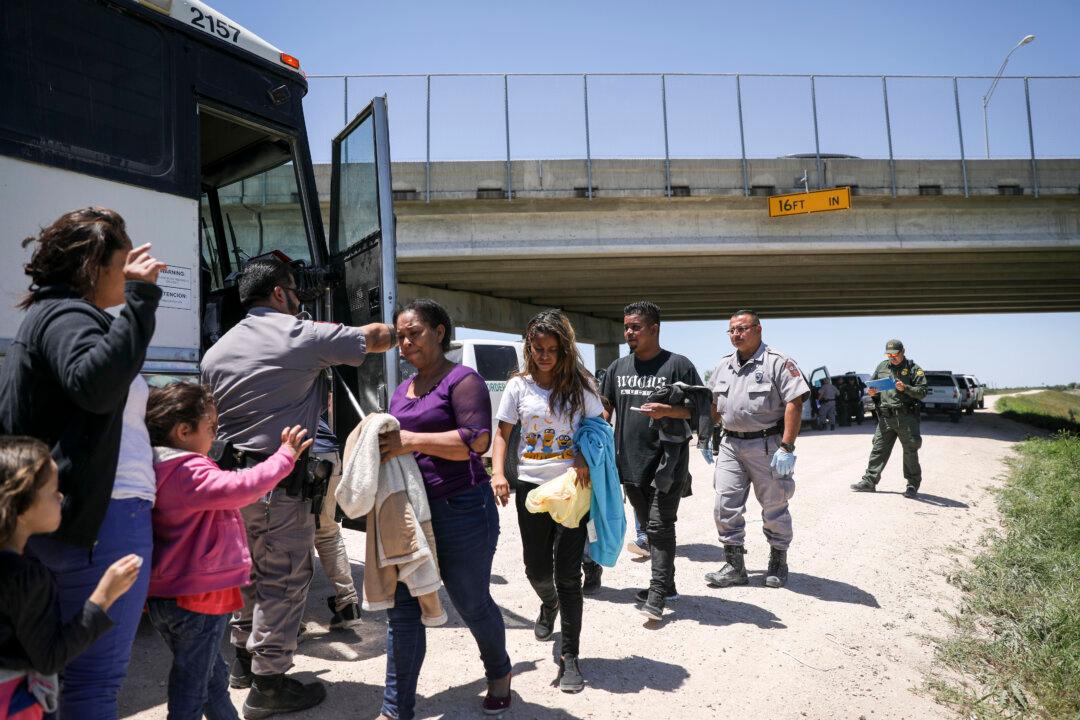U.S. Customs and Border Patrol (CBP) said they had thwarted multiple human smuggling attempts near the Texas border over the past weekend, resulting in the arrest of 11 smugglers and 27 illegal aliens.
CBP agents who were assigned in the Del Rio sector disrupted seven separate smuggling attempts, arresting illegal aliens from Ecuador, Guatemala, Mexico, and Honduras, according to a statement on Wednesday.




